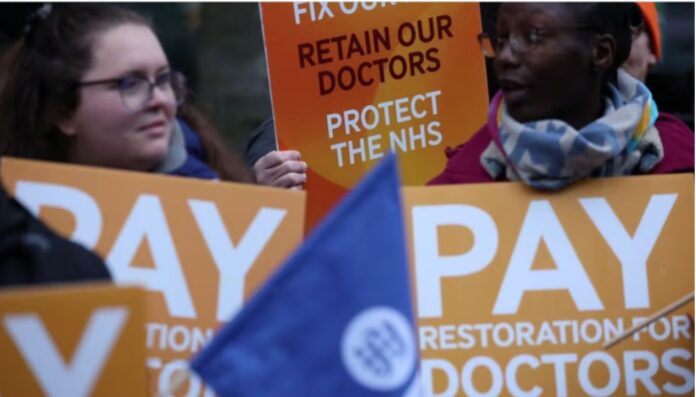LONDON:The strike action, which began last Wednesday and ended yesterday, saw a peak absence of 25,446 staff on the first day, January 3rd. NHS data reveals that 113,779 inpatient and outpatient appointments were rescheduled, bringing the total number of rescheduled appointments since the strikes began in December 2022 to 1,333,221.
Patients are “bearing the brunt” of the action, says Louise Ansari, CEO of Healthwatch England. She adds that the cumulative effect of the strikes over the past year has led to multiple cancellations, undermining patient confidence in health services and often leaving them in pain and distress.
NHS leaders warn that the strike’s impact could last for “months”. Professor Sir Stephen Powis, the National Medical Director for NHS England, expresses concern about the coming weeks as colder weather could increase hospital admissions, putting additional strain on staff covering for striking colleagues.
Experts suggest that the actual number of cancellations could be double the reported figure, as hospitals did not schedule pre-planned operations during the strikes. Matthew Taylor, CEO of the NHS Confederation, believes the national figure for cancelled appointments over the past year of industrial action significantly underestimates the true number, as many trusts did not make appointments in anticipation of the strikes.
The British Medical Association (BMA), representing junior doctors, is calling for a 35% pay rise. However, the government deems this demand unaffordable. The BMA argues that junior doctors in England have experienced a 26.1% real-terms pay cut between 2008 and 2022. Despite an 8.8% pay rise last summer and an additional 3% offered during the last round of negotiations, the BMA rejected the offer, stating it does not compensate for the nearly quarter reduction in junior doctors’ salaries since 2008.
NHS consultants, who took strike action in September and October, agreed to an extra 4.95% pay rise for senior doctors on top of the annual 6% increase already offered by the government. This will be voted on by union members this month.
A Department of Health and Social Care spokesperson said that despite the significant pressure, the healthcare system has managed well due to the hard work of consultants, nurses, and other healthcare staff who worked during the industrial action. They added that while the strikes may have ended, their repercussions will be felt for weeks and months to come. The department expressed a desire to end damaging strikes permanently and is willing to negotiate with the BMA junior doctors’ committee if they can demonstrate reasonable expectations.






